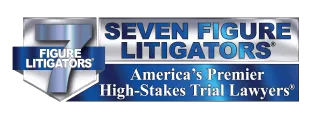If you’ve been injured because of another person’s actions, you naturally expect the at-fault party’s insurance company to compensate you fairly for your medical bills, lost wages, pain and suffering, and any other damages you have from the accident. Unfortunately, insurance companies don’t always fill their responsibilities. When they don’t, this is called “acting in bad faith,” and it usually manifests in delay or denying valid claims just to save money. A personal injury lawyer in Gillette, Wyoming can step in and help you in this situation.
The Complicating Factor
Insurance bad faith occurs when an insurer intentionally mishandles a claim. They might do this by refusing to pay, delaying payments unnecessarily, or offering unfairly low settlements, even when the evidence is clear and there’s no real, valid objection to either the details or the facts of the claim. In Wyoming, bad faith claims are a recognizable claim you can make under state law, but the complicating factor is that usually the person who can make a bad-faith complaint is the person who actually has a policy with the insurer, not a third-party victim.
A Third-Party Bad Faith Claim
In Wyoming, we’re a fault state, meaning that if you’re injured by someone else, you would file a claim with the at-fault party’s insurance company. This is called a third-party claim because you as the victim are not the policyholder with the insurance company. Unlike first-party claims (where you make a claim to your own insurer), as a third-party claimant you have few direct protections against bad-faith behavior under Wyoming law because there’s no contractual relationship between you and the insurer.
However, Wyoming law does allow third-party bad faith claims in specific situations. These are very, very limited, and you’ll need to speak to a lawyer. The Wyoming Supreme Court has made it clear in Herrig v. Herrig (844 P.2d 487, Wyo. 1992) that third-party claimants have very limited rights. You normally can’t file a lawsuit against the at-fault party’s insurer solely because they denied or delayed your claim. However, there’s a limited exception which allows you to seek attorney’s fees and interest if you obtain a judgment or settlement against the at-fault party and the insurer unreasonably refuses to pay.
Challenges for Third-Party Claimants
As a third-party claimant, your primary recourse is to pursue a claim or lawsuit against the at-fault party, not their insurer. Normally, it’s the insurer who will pay you, but your claim is actually against the person or entity who caused your injury. If you’re being denied payment, your primary recourse is to sue the at-fault driver (or whatever entity is responsible for your injuries in whatever type of accident you were injured). If their insurer then engages in bad-faith tactics, there isn’t a lot you can do directly, but there are some options to bring indirect pressure. It all starts with having your own personal injury lawyer who can help you as you gather evidence of the insurer’s unfair conduct.
How a Personal Injury Lawyer in Gillette, Wyoming Can Help
While you can’t directly sue the insurer for bad faith, a lawyer can:
Negotiate Effectively
Because the insurance company knows that you have limited leverage, they may offer you very low settlements or no settlement at all. Once you get a lawyer, you signal that you’re more serious. There’s now a danger that you will actually take their policyholder to court, and if their policyholder should lose, they would then find it much harder to deny your claim. Your lawyer will express this possibility in negotiations with the insurer to apply pressure.
Build a Strong Case
Succeeding in a lawsuit requires a strong case. Your lawyer will start by gathering the important evidence and then using this both in negotiations and in the courtroom as necessary. The stronger your evidence and the more convincing your lawyer is in their ability to put that evidence together and show why your case is strong, the more likely it is the insurance company will come to the bargaining table in better faith.
Pursue Litigation
If the insurer refuses to settle, you and your lawyer can then sue the at-fault party. If you can take the liable party to court and win a judgment, this will put a lot of pressure on the insurance company to fulfill their contractual responsibilities. If their policyholder is on the hook for your damages, and the insurance company at this point continues to act in bad faith, the policyholder can then sue them directly for bad faith. As the policyholder, that person does have standing to bring a lawsuit directly against the insurer because the insurer is breaking contract with them.
Therefore, what you and your lawyer may ultimately end up doing by suing the at-fault party is putting pressure on the policyholder to force them to put pressure on the insurance company in turn. If the insurer unreasonably refuse even after there’s a judgment against their policyholder, you can seek attorney’s fees and interest.
Document Misconduct
While you cannot bring a direct action against the insurance company, if you have evidence of their bad-faith tactics, your lawyer can use this to strengthen your position in negotiations and even to bring a regulatory complaint against the insurer with the state.
Take Care of All Legalities
Finally, your lawyer can also make sure that all the nitty-gritty of the legalities are taken care of, so there’s no chance you will lose out because you missed a deadline or filed something incorrectly.
Steps to Take as an Injured Person
First, document every interaction you have with the insurance company. Keep a record of all emails, letters, phone calls, and any settlement offers you’re sent, and be sure to note dates, any names involved, and any other details. This documentation may help your lawyer demonstrate a pattern of unfair tactics and support your complaint to the Wyoming Insurance Commissioner. While the Commissioner can’t directly order that you be compensated, the Commissioner does have various ways of putting pressure on insurance companies.
Second, don’t accept any quick settlement offers. It’s common for insurers to propose low amounts early in the process because they hope that you’re either under financial stress or just unaware of what your claim is really worth. Either way, they’re counting on you signing a low settlement and, at the same time, signing away your right to seek anything else. Always run the settlements past the lawyer before you do anything. If the insurance adjuster tells you that you have to make the decision right now or the offer is off the table, just tell them you do not sign offers without your lawyer, no exceptions. Third, be sure to consult a personal injury lawyer as soon as you can. You only have four years to bring a personal injury claim, and any delay can weaken your case. If you’re already experiencing issues, ask your lawyer right away about whether it’s time to file a complaint with the Wyoming Insurance Commissioner.







